12 Easy-To-Digest Foods That Even the Most Sensitive Stomachs Can Handle
Sensitive stomachs, listen up! The post 12 Easy-To-Digest Foods That Even the Most Sensitive Stomachs Can Handle appeared first on Camille Styles.

Truth be told: chronic digestive issues are the worst. They’re uncomfortable (if not painful), frustrating, and stress-inducing. They’re all it takes to spiral into a restrictive diet mission or a woe-is-me conversation with your bestie. We’ve all been there. Although an unsettled or bloated belly is totally normal from time to time, daily digestive upset is not. So, how to curb the latter? In part, by minimizing digestive offenders. But beyond food, there are other practical habits that improve digestion too—and we’ll dive into those. Without further ado, below are easy-to-digest foods (to eat on the reg). Soothe your stomach for a happier, healthier you.
Feature image by Michelle Nash.
1 of 11
Why is healthy digestion important?
Because it impacts everything, really. Our digestive system is key for overall health and longevity. Being able to properly digest, assimilate, and remove what we consume is foundational. For our organs to work properly, our immune system to thrive, and our hormones to stay balanced, we need healthy digestion. Otherwise, we experience a host of uncomfortable symptoms: abdominal pain, bloating, inr gut has often been referred to as our “second brain.” That’s why optimal gut health—and knowing how to improve gut health if needed—is key.
2 of 11
Signs of Good Gut Health
So, how do you know if your gastrointestinal tract is working? A few ways.
1-2 bowel movements per day. (These should be well-formed and easy to pass.) Free of symptoms like diarrhea and constipation. Minimal gas, bloating, and infrequent abdominal pain. Lack of skin disorders, autoimmune conditions, and inflammation.Signs of Poor Digestion
Physically, you can probably tell. Signs of poor digestion include:
Frequent discomfort, gas, bloating, constipation, diarrhea, and heartburn Feeling chronically tired and experiencing mood swings. Food cravings Unintentional weight fluctuations Skin issues like psoriasis and eczema Autoimmune conditions 3 of 11
5 Steps to Improve Your Gut Health Through Diet
With optimal digestion as the goal, let’s dive into simple ways to improve your gut microbiome.
Focus on a diverse diet. Specifically, foods rich in fiber and antioxidants. The more variety, the better. After all, different ingredients can lead to a more diverse microbiome. Prioritize the Mediterranean way. There are a variety of reasons to eat like the Mediterraneans do, but mainly because of the emphasis on vegetables, fruits, beans, and legumes. These are high-fiber, gut-friendly foods that promote the growth of beneficial bacteria. Eating a range of fresh, whole foods, mainly from plant sources, is shown to improve gut health. Choose fermented foods. Fermented foods (or drinks!), like plain yogurt, kimchi, and tempeh can benefit the microbiome. They enhance its function and reduce the abundance of disease-causing bacteria in the intestines. Add in prebiotics. Prebiotics are food for your gut’s microbiome. Many fruits, vegetables, and whole grains contain prebiotics—like these starches. Eating cooked and cooled potatoes and rice, for example, turns some of the digestible starches into resistant starches. Increase probiotics. Fermented foods, like yogurt, tempeh, and kimchi are great. Otherwise, opt for a probiotic supplement. 4 of 11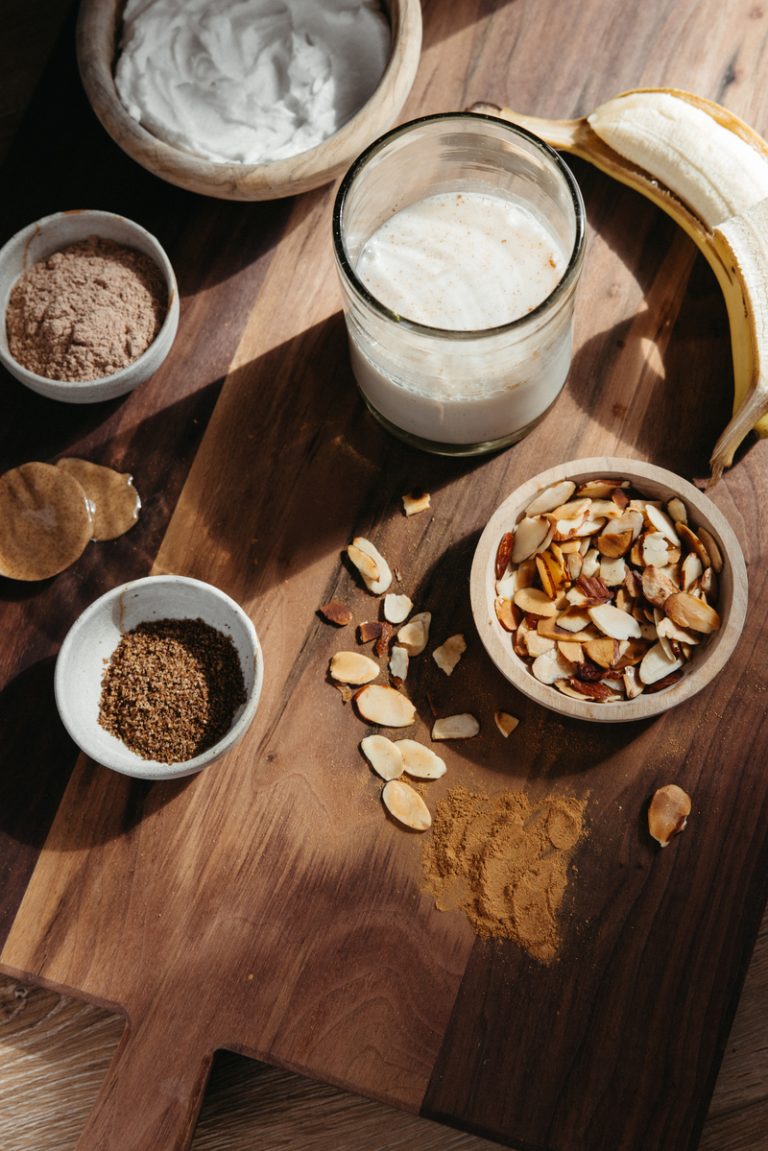
12 Easy-To-Digest Foods
This goes without saying, but what you eat directly influences your gut bacteria. And as mentioned, we want a healthy gut to keep chronic diseases at bay, but to also reduce inflammation, keep your emotions stable, and help you maintain an optimal weight.
Good news: it’s never too late to improve your gut health! Research shows that diversifying your plate can change your microbiome in as little as 24 hours. A few of the best foods for gut health include asparagus, artichokes, chia seeds, coconut yogurt, leafy greens, and sauerkraut. When it comes to gut health, keep in mind that how you eat is just as important as what you eat.
What should you eat to maintain a healthy diet—while avoiding digestive problems? Let’s take a look at these 12 easy-to-digest foods that may help.
1. Bananas
The riper the banana is, the easier to digest (caveat—if you struggle with IBS, they may be harder to digest than strawberries or grapes). Bananas are rich in carbohydrates, potassium, and fiber. They also provide fluid, which is important for those with diarrhea or constipation. Last but not least, bananas are great for PMS. When possible, pair bananas with Greek yogurt (a source of protein and probiotics) and chia seeds to aid in blood sugar balance.
2. Bone Broth
Broths—particularly bone broth—are incredibly nutrient-rich and easy to digest. They contain amino acids, electrolytes, and collagen (all of which are soothing when your stomach is upset). Nutrients vary between broths, but many contain vitamins and minerals such as iron, vitamin K, vitamin A, zinc, and more. All of which can improve overall gut health and nervous system function.
5 of 11
3. White Rice
Fiber is generally a good thing when it comes to gut health, but for someone with gastrointestinal issues, high-fiber foods may not be the best idea. Fiber is hard to digest, which can be problematic for someone with slow motility. Therefore, low-fiber foods, like white rice, potatoes, and low-fiber fruits (like grapefruit) are easier on the stomach. When possible, pair white rice with a side of healthy fats (avocado or olive oil) and high-quality protein. This will help with gut distress and blood sugar balance.
4. Sourdough Bread
Like white rice, sourdough bread is a low-fiber food. Furthermore, sourdough bread may be easier to digest than other refined grains. According to some studies, sourdough bread acts as a prebiotic, which means that the fiber in the bread helps feed the good bacteria in your intestines. These bacteria are important for maintaining a stable, healthy digestive system.
6 of 11
5. Lean Protein
Lean, high-quality protein (poultry, fish, tofu, low-fat dairy, etc.) tend to be easy to digest. In part, due to their low fiber content. However, it’s also important not to go overboard with the protein either. When portions are too large in one sitting, it might impact your ability to digest quickly. Furthermore, try to limit ultra-processed forms of protein, like sausage and protein bars.
6. Cooked Vegetables
When it comes to vegetables, prioritize cooking them. Once cooked, they’re less fibrous. In other words, the heat aids in digestion. While cruciferous veggies (broccoli, cauliflower, and Brussels sprouts) can cause digestive woes, produce like spinach, pumpkin, squash, and carrots are easier to digest. They have less fiber and are soft once cooked.
7 of 11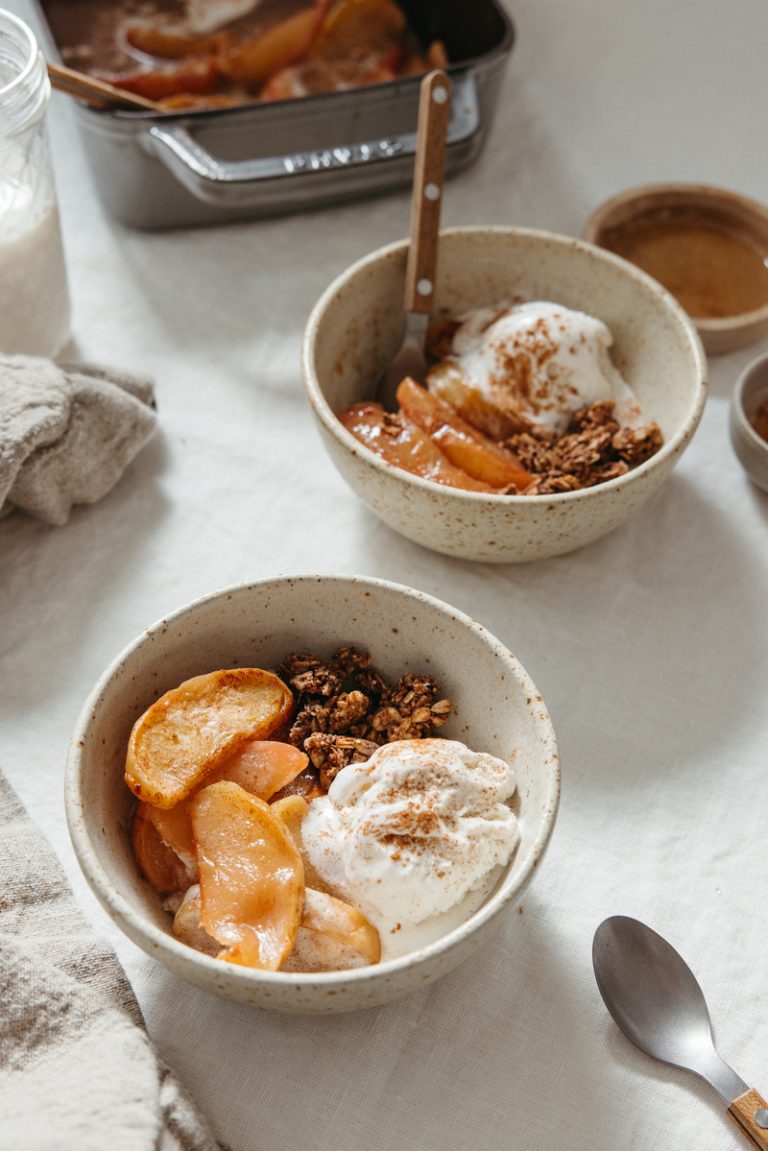
7. Applesauce
Fruit is rich in nutrients and antioxidants, but the fiber in fruit can lead to digestive troubles. Luckily, the solution is simple. Like produce, cook and puree it to break down the fiber and make it easier to digest. Applesauce is very easy on the stomach, plus it contains pectic, which may help treat some types of diarrhea.
8. Eggs
Whether hard-boiled, poached, or scrambled, eggs are rich in nutrients—protein, choline, calcium, phosphorus, and more. And for most, they’re easy to digest. Serve eggs with sourdough toast for an added dose of carbohydrates. If frying your eggs, use ghee instead of butter (or olive oil), as it may be easier on the stomach. Due to their sulphur content, eggs can contribute to intestinal gas for some, but they are beneficial for other digestive symptoms.
8 of 11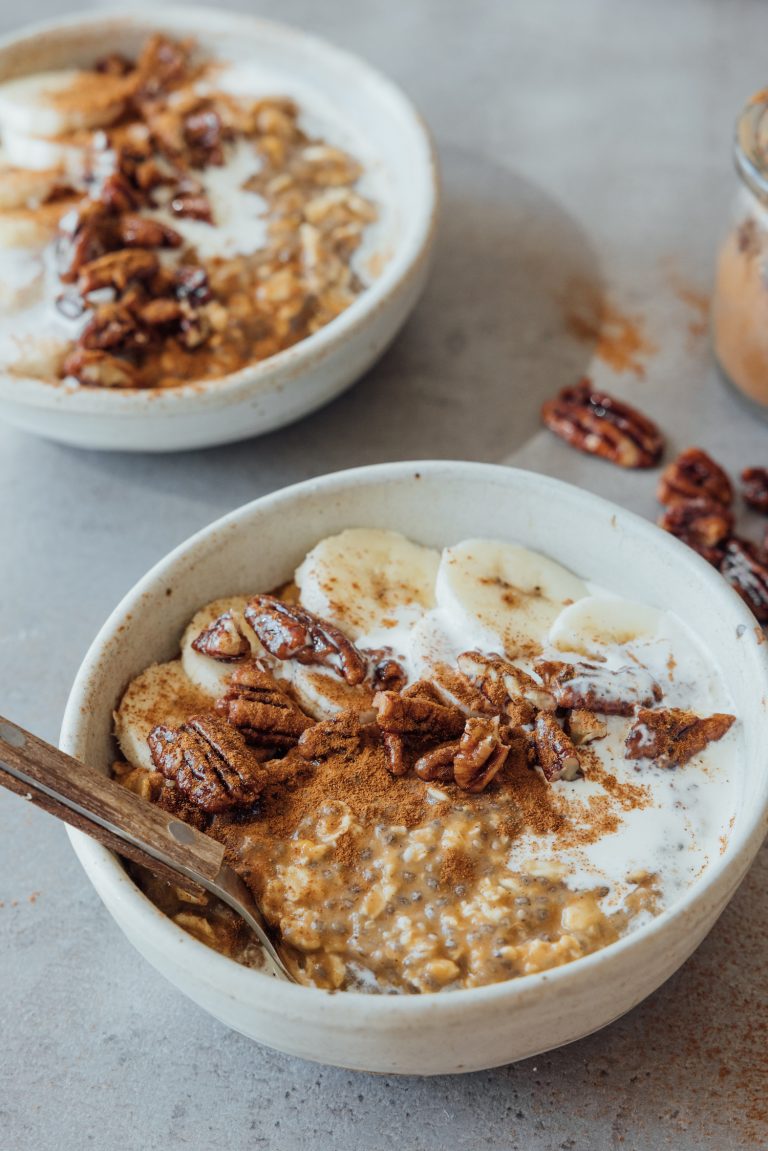
9. Instant Oats
Love oatmeal but the fiber doesn’t agree with your gut? Give instant oatmeal a shot. Also known as quick oats, instant oatmeal are the most processed and broken down of the oats, thereby making it a bit easier to digest. To make it more digestive-friendly, add chia seeds, stewed berries, and a dollop of Greek yogurt. All of these ingredients are great for the gut and help with stable blood sugar in the morning.
10. Gelatin
Gelatin-rich soups and broths are also one of the key components of the GAPS diet, which has been designed to heal the gut and promote healthy digestion. But, what is gelatin? Gelatin is made from animal collagen—a protein that makes up connective tissues, such as skin, tendons, ligaments, and bones. Gelatin also absorbs water and helps keep fluid in the digestive tract, promoting good intestinal transit and healthy bowel movements. If you can’t get behind gelatin, consider adding a scoop of collagen to your morning coffee or matcha. You won’t taste it!
9 of 11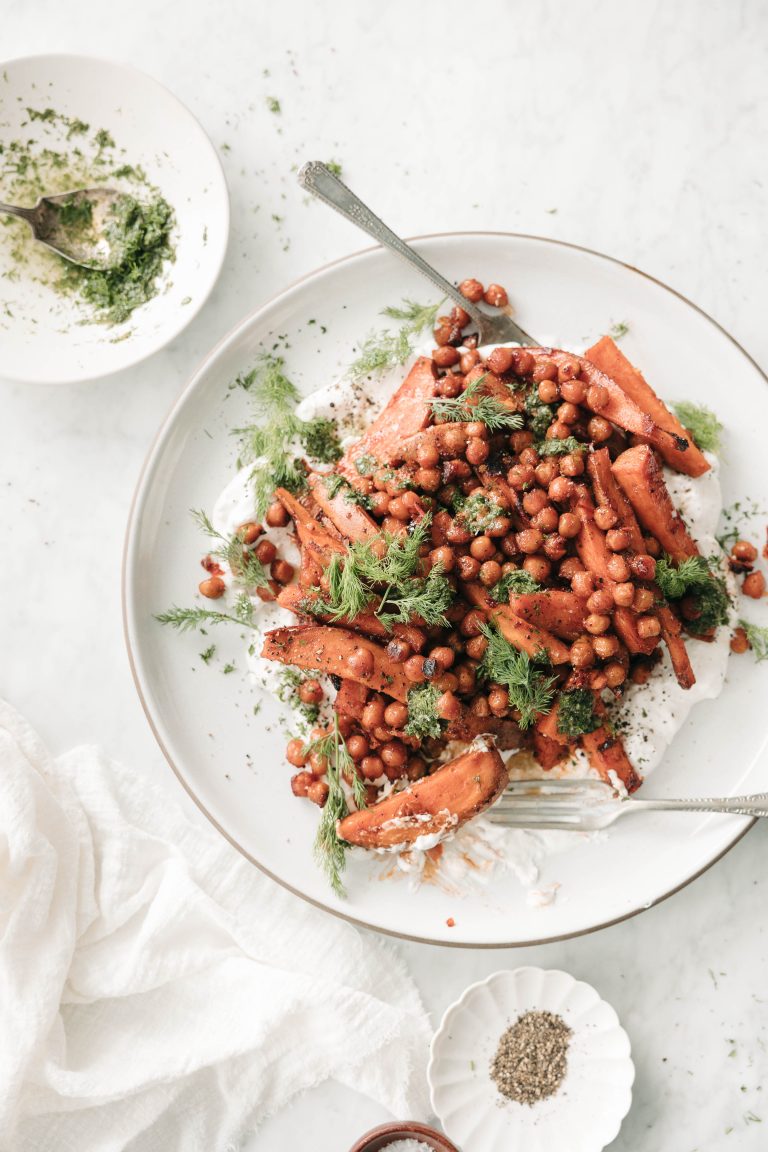
11. Low-Fat Greek Yogurt
Dealing with bloat? You may want to pay attention to the texture of the food you’re consuming. The texture of your food can often dictate how bloated you will feel after. If bloating (or gastroparesis) is something you deal with, eating soft foods such as yogurt, smoothies, soups, and pureed foods may provide some relief. Why low-fat yogurt? While full-fat yogurt is better for satiation, non-fat is easier on the stomach. It also gets bonus points for having probiotics, which help promote digestive health in the long run.
12. Salmon
Rich in omega-3 fatty acids and protein, salmon is a nutritional powerhouse. It’s also easy to digest. Salmon’s fatty acids help reduce inflammation. In turn, lowering our risk for digestive disorders, inflammatory bowel disease, and more. Not only can eating more salmon help reduce discomfort, it can improve overall digestion. Add baked or poached salmon to your weekly repertoire to support your gut health.
10 of 11
Foods That Are Hard to Digest
Contrary to foods that are east to digest, the Standard American Diet isn’t exactly filled with gut-supporting foods. Generally speaking, some of the top gut offenders are:
ultra-processed grains refined sugars spicy foods industrial seed oils conventional dairy alcoholIn other words, these ingredients can have a massive impact on overfeeding yeast and candida in the body. In turn, you guessed it, negatively affecting the gut.
Not sure if your digestive health is up to par? Rather than start nixing certain ingredients, partner with a functional medicine doctor or gastroenterologist to get to the root of your gut issues.
This post was originally published on February 16, 2023, and has since been updated.

 Troov
Troov 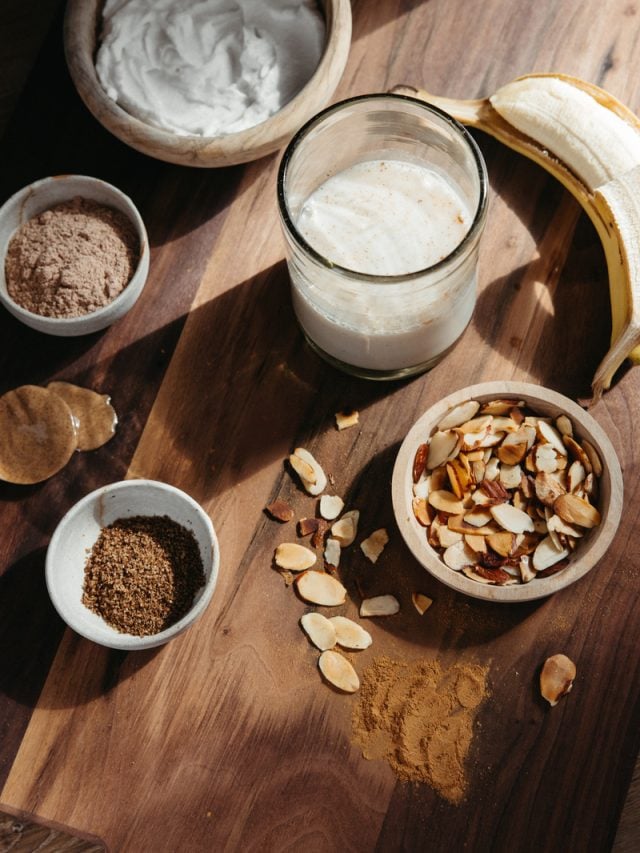





























.jpg)


